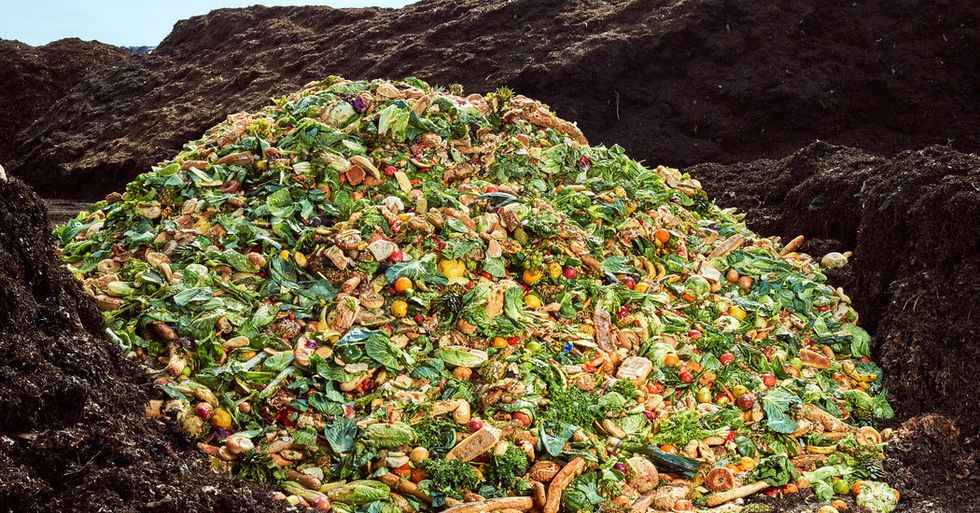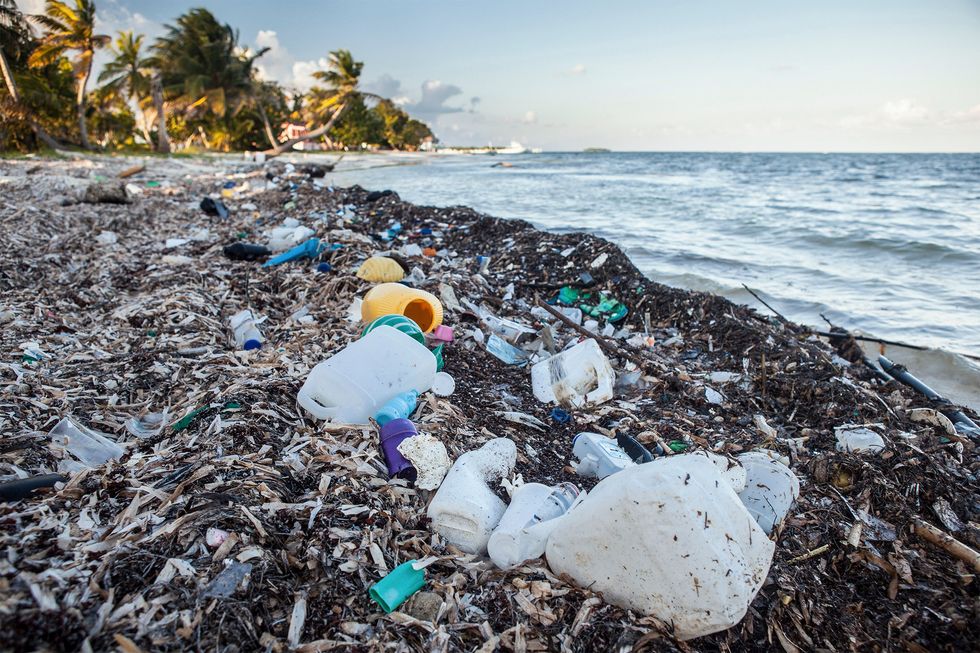Every time we turn around it feels like someone is telling us the planet is dying and it's all our fault. The oceans are filled with trash, we have less and less trees every day, and Earth's temperature climbs with each passing day it seems. Of all the problems we're facing at the moment, this one is the most difficult to grasp.
We hear people say to not use straws and recycle, but does any of it really matter? Can one person changing a few habits really end up making that big of an impact on such a global crisis?
Yep, it can.
So here are five very easy and very manageable ways to help Mother Nature out!
Actually stop using straws

This is much, much easier than it seems and so much more necessary than many people realize. According to SurferToday, "Every single day, US consumers use over 500 million plastic straws. In other words, that's 182,500,000,000 straws used every year, only in the United States.They could be used to wrap the earth's circumference 2.5 times a day."
That's a lot of straws.
But you can make a small difference! There is a huge variety of reusable straws in stores and online. Everything from plastic to silicone and metal, etc. Find one that works for you and keep it on you at all times. Pop it in your car, purse or backpack so that you're always prepared should you ever be in need of coffee or out to eat with friends!
Some people need access to reusable plastic straws, but if you don't, consider making the switch!
Switch from Google to Ecosia

Another super easy one! Ecosia is a search engine like Google. It earns revenue from ads just like any other search engine, but Ecosia actually uses 80% of it's profits to plant trees in areas around the world that need it the most! Most of the trees are being planted in the rain forest as we speak.
It's very simple to add to whatever web browser you use and with every search, you're helping to plant trees all over the world! Cool right?
Cut back on dairy and meat
This is where it starts to get a little trickier. Producing meat and dairy creates a ton of waste, consumes a lot of the worlds greenery and uses as much fossil fuel as it takes to drive a car 20 miles. Also, the oceans are being over fished and environmental scientists have predicted that if things progress at the current pace, the oceans could be fishless by 2048.
Woah.
This is kind of meant to scare you. I mean, I get it. Meat and dairy are fantastic (dairy especially!). But did you know that even by cutting back a little you could lower your CO2 emissions by five pounds per day? Sounds good right? And it is much easier than you'd think to cut back. You definitely don't have to go completely meatless, but maybe one or two days a week could be vegetarian or vegan!
Cutting back on meat and dairy helps out our planet, but it is also good for your overall health as well! So it's a win, win situation.
Go reusable
Cut plastic from your life! Invest in some reusable bags for shopping and some water bottles and coffee cups for daily hydration. If your pack a lunch, consider using tupperware or buying little reusable bags to pack food instead of ziplocs. Some people even invest in reusable silverware to keep with them, so they never have to use plastic at a restaurant!
There are so many ways to cut out plastic from our lives. I've just hit the tip of the iceberg above! Find the level you're comfortable with and then build up from there. We've all got to do our part!
Find an alternative to the trash

We all know the three Rs: Reduce, reuse, recycle! Now just put that into action! Make sure you are recycling as MUCH as possible and buying foods in containers that can be recycled. You could even try and buy in bulk to eliminate the need to recycle!
Another good way to avoid having everything end up in a landfill is to compost! Take all your degradable foods and throw it in your compost. You can then use it to grow a healthy garden, which helps out the bees! This may not be a viable option for everyone, but if it is for you, please consider it!
If we all do our part, little by little, we can make a big difference. It seems daunting at first, but really it's so much easier than you'd think. Just remember: there is no planet B.












